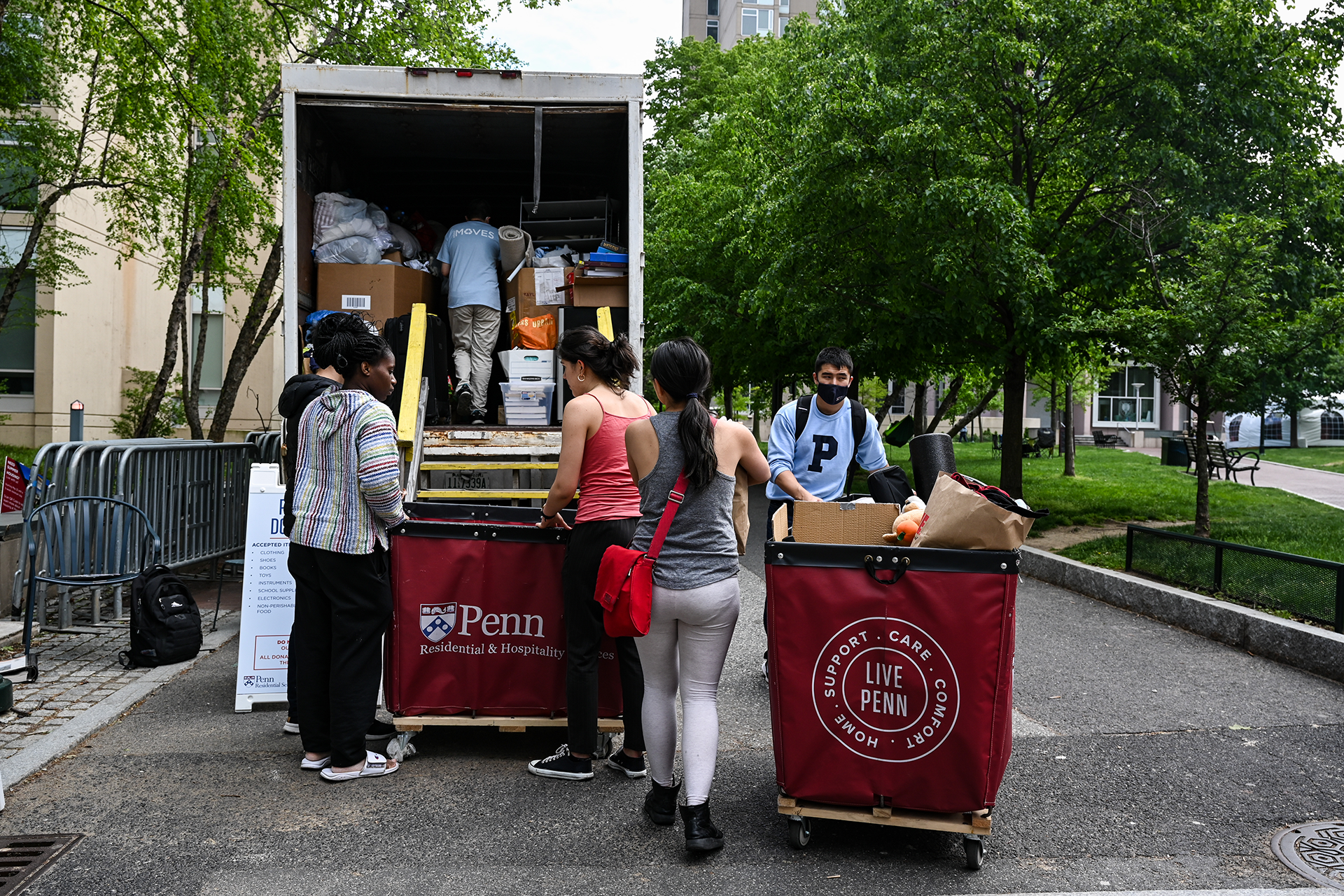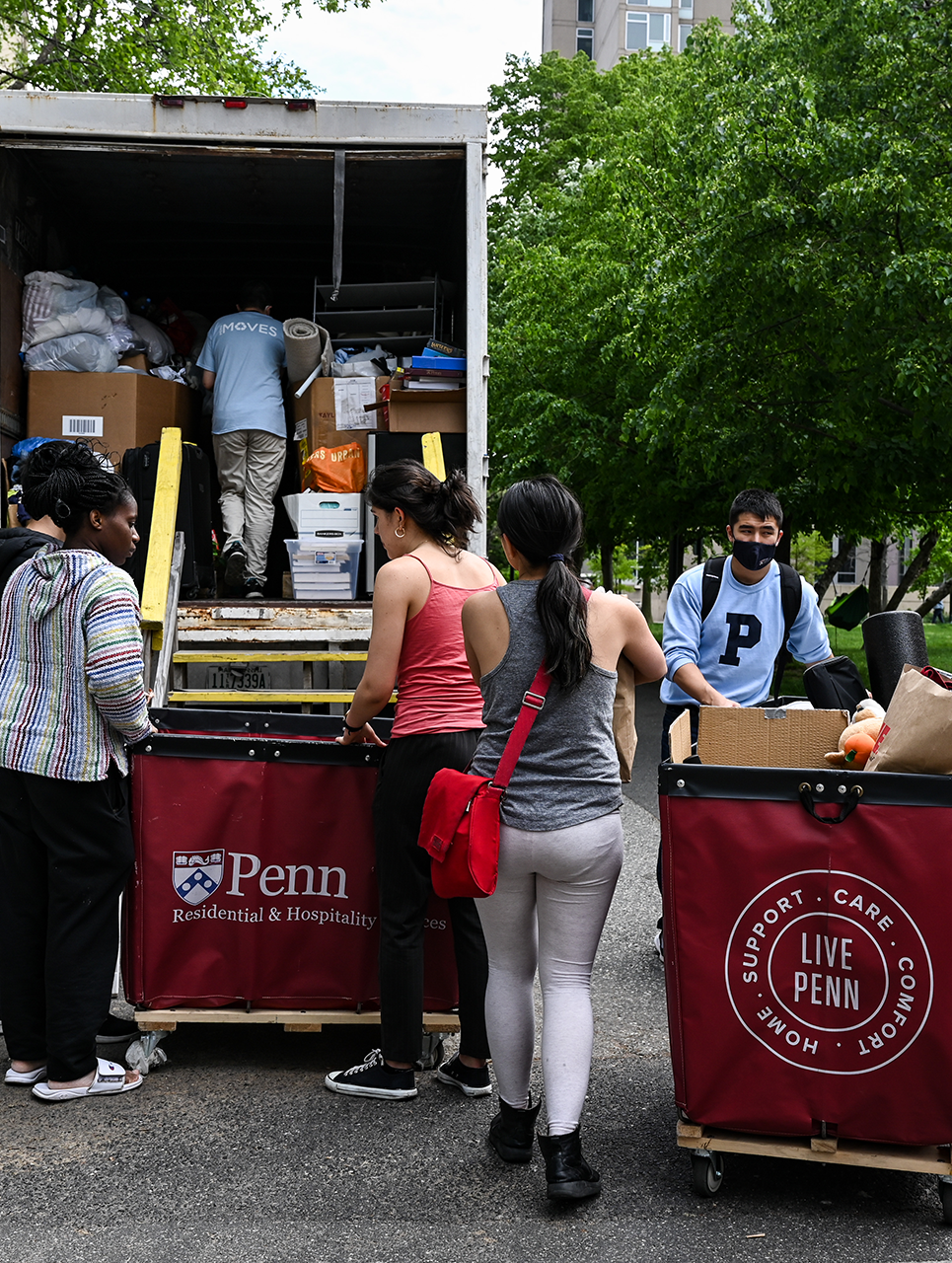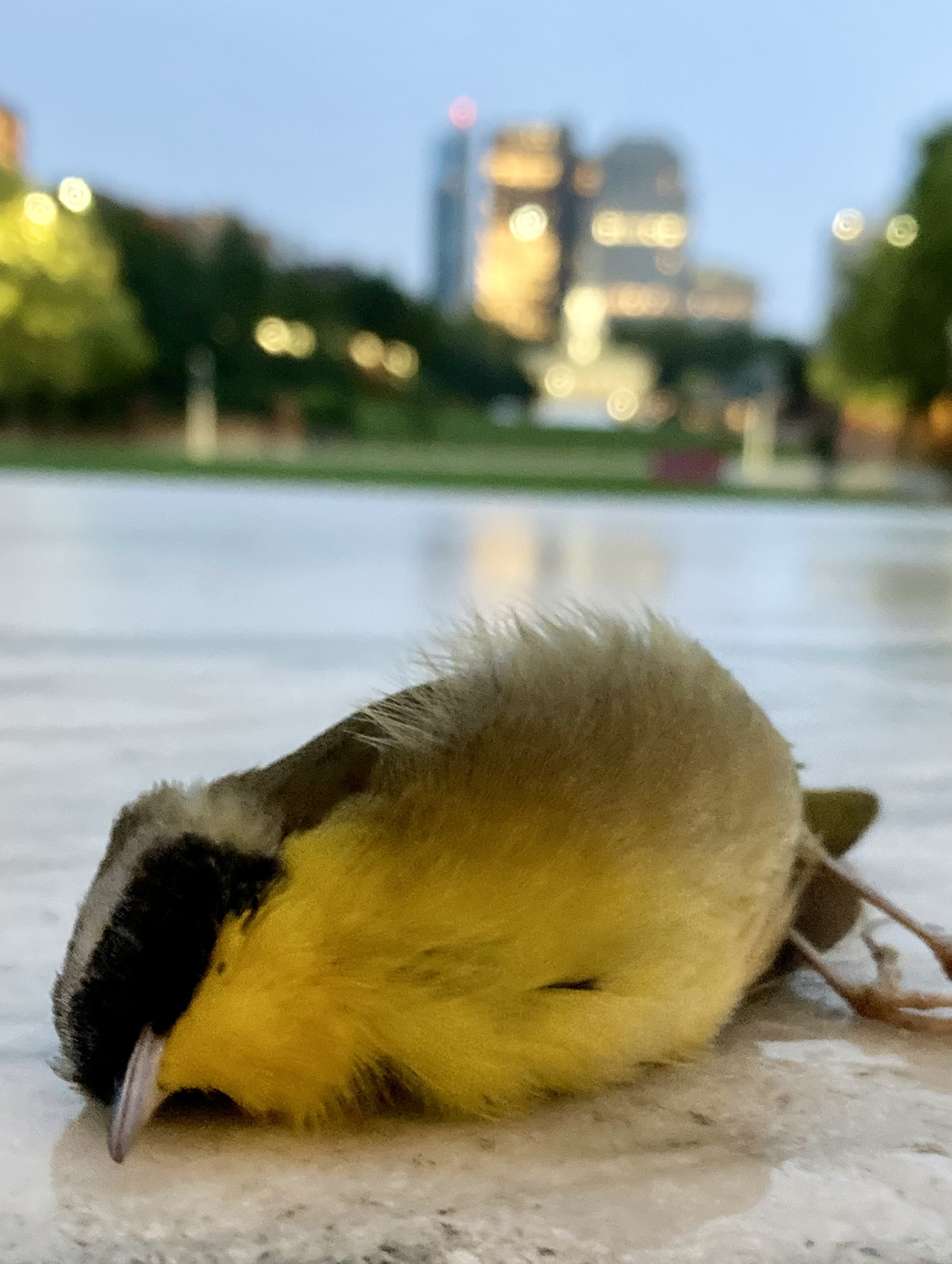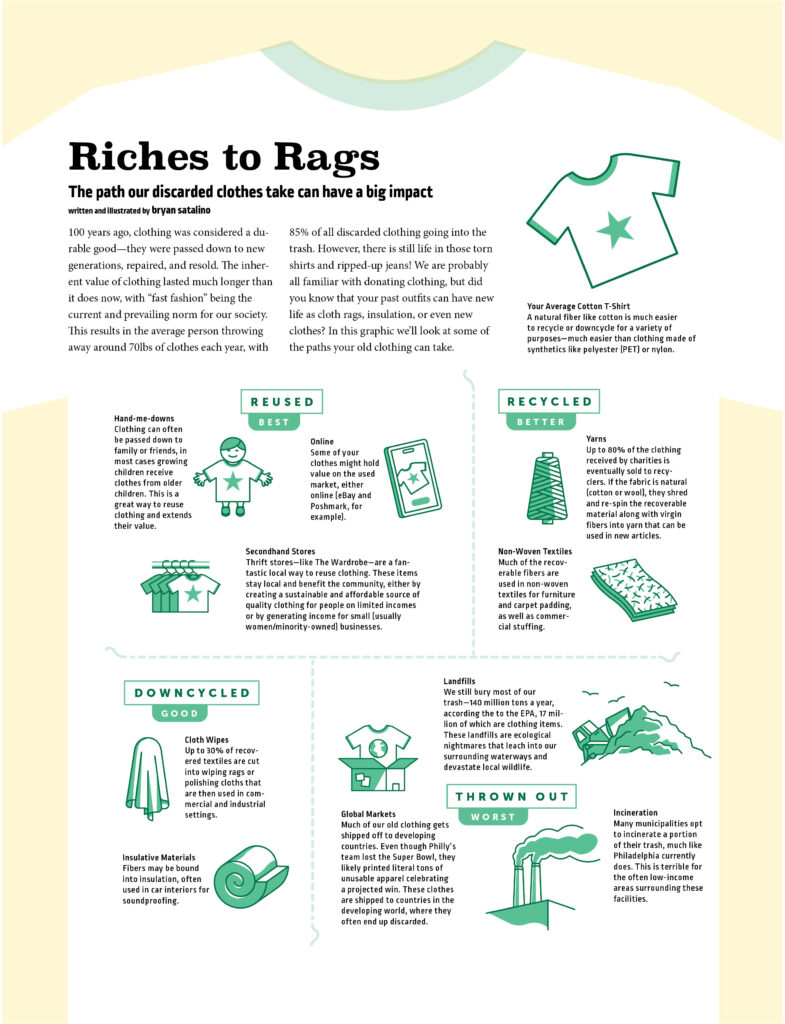For residents of West Philadelphia, spring is a season for the senses. As trees and flowers break into full bloom, some of the city’s greenest neighborhoods reach their most beautiful state. The air feels fresh, the sun seems brighter than ever, and the community is rejuvenated.
But there’s an unwelcome companion that also emerges at the beginning of May, an annual tradition that stifles some of that spring spirit: the mountains of trash piling up on the sidewalks as college students head home for the summer.
“Year after year, the students just leave their stuff on the curb and go,” Vicki McGarvey, a member of the board of directors for the Spruce Hill Community Association, says.
With the University of Pennsylvania, Drexel University and Saint Joseph’s University campuses all located in the same general vicinity, thousands of students will pack up their belongings this May, leaving behind a mess of household trash, food waste, furniture and clothing. Much of it remains useful and could be given a second life rather than heading to a landfill, but it requires a concerted effort from the universities and buy-in from the student body to make it happen.
It’s frustrating to see that students don’t see the value in making sure something gets a good home or gets reused.”
— Vicki McGarvey, Spruce Hill Community Association board member
“It’s frustrating to see that students don’t see the value in making sure something gets a good home or gets reused,” McGarvey says. “It feels a little contrary to the students being all about sustainability and caring about the environment when they just dump their crap and go. It’s disheartening.”
The same problem is present in North Philadelphia, where Temple University’s move-out has for years left neighbors navigating heaps of trash — some bagged, some not — often left out for days before it’s picked up by the City’s sanitation workers. As universities juggle the dual responsibility of ensuring both on- and off-campus students move out sustainably and respectfully, those renting apartments in the surrounding neighborhoods pose the biggest challenge.
Chris Carey, senior associate dean of students at Temple, says the university does its best to provide education and resources for students, many of whom are moving out of rentals for the first time. That includes offering free mattress disposal bags and encouraging students to donate items to Uhuru Furniture, GreenDrop and the Cherry Pantry, which works to fight hunger in the Temple community.
The school also employs off-campus dumpsters and for the first time this year will enable students to schedule trash pick-up for larger items, following a particularly contentious process last year that left neighbors frustrated.
“We will be encouraging students to start early and create a plan with roommates so that they do not leave the community with headaches after moving,” Carey says.
At Penn, which collected about 130,000 pounds of donated goods during its 2019 move-out — the last before the pandemic significantly altered plans — the Office of Social Equity and Community is working to improve the relationship between students and neighbors. The office opened in 2020, and this year its director, Scott Filkin, collaborated with McGarvey on a community survey that received about 150 responses, helping Penn to better understand its neighbors’ most pressing concerns.

“One thing that is really important to people in the neighborhood is that the resources stay in the neighborhood,” McGarvey says. “People feel really strongly like if we have to deal with this, we don’t want this stuff just sent away for other people to benefit from.”
West Philly has a history of resourceful practices, including “Freecycling,” curb alerts and Buy Nothing groups, McGarvey says, so when spring rolls around, neighbors know they can expect to see everything from lamps and televisions to unworn clothing out on the curb. But the haphazard, unstructured approach to their disposal prevents many items from being rescued, and putting the onus on the community only perpetuates the ways that universities impose on their neighbors.
“It would be such a benefit to the student experience if they learned what it meant to be a good neighbor — to live as neighbors rather than have one body committed and one body transient,” Filkin says.
On campus, Penn offers containers for students to donate useful items that are shared with Goodwill centers in Philadelphia and New Jersey. The university even brings in a tractor trailer for students in its high-rises to donate large items. Some donations are also passed on to financially constrained students each fall as a starter pack for their college experience, Barbara Lea-Kruger, a Penn spokesperson, says.
Winter clothes are among the most common goods left behind by international students traveling home to warmer destinations. In the past, refrigerators and microwaves comprised a significant portion of the move-out madness, but Penn began installing them in many rooms on campus, cutting back on the chaos in spring. Last year, the university collected about 36,000 pounds of donated items, a decline largely caused by removing those appliances from the equation.
For its part, the Streets Department partners with universities to collect excess trash and divert as much as possible away from waste streams, spokesperson Keisha McCarty-Skelton says. Temple and Drexel have developed waste-reduction programs, “and we are looking forward to seeing the impact these will have in conjunction with our own efforts,” she says.
Minimizing waste — and ensuring it doesn’t end up spread over city streets — is a challenge that universities are still working to overcome. Keeping useful items from heading toward a landfill is a “heavy lift,” Filkin says.
Penn previously used its ice rink as a central gathering place for the redistribution of used goods, but in the wake of the pandemic, Penn and other universities are working to re-establish healthy move-out traditions. At St. Joe’s, for example, relationships with Philabundance, Books Through Bars and Goodwill were all disrupted by the pandemic. The university now partners primarily with HawkHUB, a campus resource center, to steer nonperishable food and basic care items to anyone in its community experiencing need, according to Max Shirey, assistant director of residence life. St. Joe’s is aiming to rebuild those relationships going forward to make the most of the move-out process.
Across the city this May, universities will take the next crack at what Penn sustainability director Nina Morris calls an “iterative process” — teaching students about their role, learning from neighbors about their needs and working to ensure everyone can enjoy everything spring has to offer, without the side effects.
“We really can’t do this alone,” Morris says. “Students, Penn and other higher education institutions, neighbors, property managers and the City all have a responsibility and an opportunity to make this a better experience for everyone.”









It’s not just students who throw out items that could easily be recycled. I’m amazed at some of the things left out in my Philly neighborhood on trash days – perfectly good furniture, toys, etc.